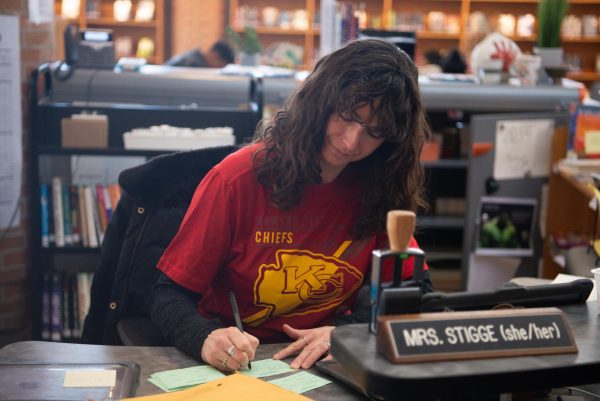The Price of Education
Junior Kendal Adams-Fink’s experience as an IB Diploma Candidate without the same level of financial backing as her peers
December 13, 2021
You have something to prove and this is what you need to do to prove it.
The clock reads 4:30 a.m.
This is where you need to be if you want to do this in the future.
It’s now 5:45 a.m., and these mantras continue to repeat over and over in junior Kendal Adams-Fink’s head. She continues to cram as much as she can before 7:40 a.m.
Adams-Fink’s first semester as an International Baccalaureate (IB) diploma candidate is swiftly coming to an end, and despite the stress that comes hand-in-hand with midterms, she remains motivated.
“I look around me and there are nice adults that I respect immensely,” Adams-Fink said. “I’ve always wanted to prove myself, so I say ‘This is stressful right now, but I don’t want to let anybody down.’”
Adams-Fink has always been determined to achieve above and beyond expectations, but her motivation has been heightened by the annual price attached to the candidacy program.
“The IB diploma costs $357 dollars a year,” Adams-Fink said. “ willing to pay for my education, which I greatly appreciate, and also has financial aid options.”
Despite the support of her friends and family, Adams-Fink’s socioeconomic status can, at times, be isolating.
“I’m in a place of privilege,” Adams-Fink said. “But I feel I have different views about where money goes. I see all these students with really, really big houses and they get allowances, or people clean their houses or they can make little comments, ‘Oh, yeah, it was just a couple hundred dollars. That’s nothing.’ A couple hundred dollars isn’t actually that much for certain things, but it just means something different to me than it does to the people around me.”
Students and families’ ability to stay in the program can be an issue, but Adams-Fink believes the lack of diversity is a greater concern as there are options in place for financial support.
“ racial identity more than socioeconomic status,” Adams-Fink said. “ has really good financial aid options that they need to advertise more. Obviously, there is a connection between race and socioeconomic status in a lot of situations, but I feel like these opportunities aren’t broadcasted to certain communities as much as they should be.”
If students are interested in enrolling in AP, IB or Honors courses, but have financial concerns, contact IB Coordinator Amy Walker.
“I would love to be able to remove that barrier for as many of our students as we possibly can,” Walker said.








